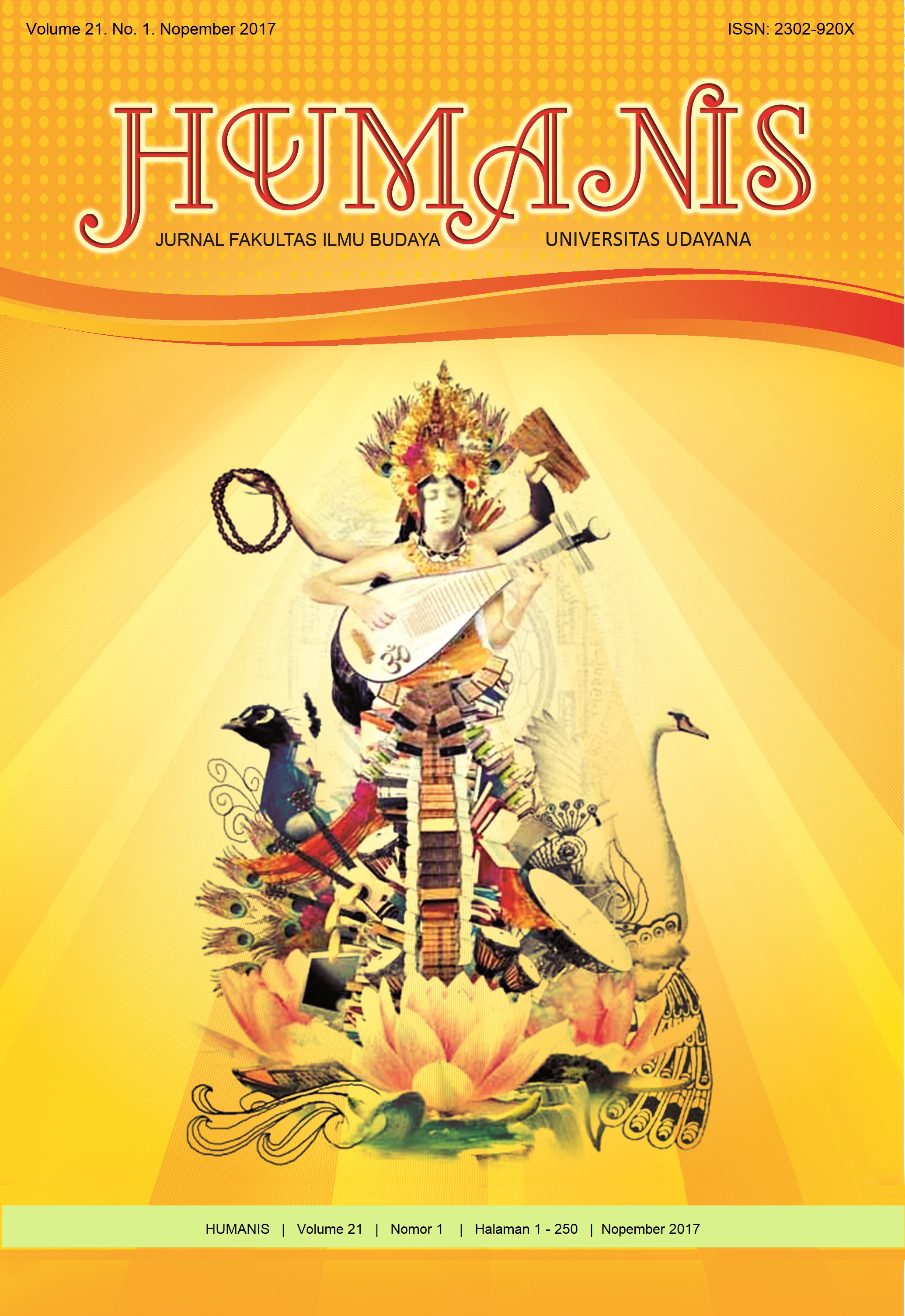Makna Ritual Nyepeg Sampi dalam Upacara Usaba Kawulu di Desa Adat Asak Kabupaten Karangasem
Abstract
Asak village is one of the old village in Bali which classified as Bali Aga village / Bali Mula (Ancient / Real Bali). Society of Asak village, Karangasem district, Karangasem regency has a tradition of ritual and sacrifice that has adifferent characteristic from another old villages in Bali; namely 'Nyepeg Sampi Usaba Kawulu Pecaruan Agung 'ritual, which pertained Bhuta Yadnya ceremony and takes place every once in a year exactly on 'sasihkawulu` in January / February, aiming at neutralizing the village area from the ??disturbance of real and ashtral (supernatural)creatures. This study uses the theory of Interpretative Symbolic proposed by Clifford Geertz. This theory becomes relevant to analyze the problems as mentioned earlier. Symbolic interpretive theory will reveal local community thinking (mindset) about Nyepeg Sampi Usaba Kawulu ritual, where Geertz’s interpretive paradigm sees a culture as a system of symbols, thus the cultural process should be understood, translated and interpreted. The society use of symbols is to express their world views, valuesorientation, ethos, and other various cultural aspects. Therefore, this theory will explore the meaning contained in the ritual.The results of field research indicates that the Nyepeg Usaba Kawulu Sampiritualis a ritual held periodically that has become a tradition and is unique (only available in the mentioned village) that contains the rational logic behind the various forms of symbols and meanings to be interpreted. In the implementation is collectively held by Sekehe Teruna Adat (Teenagers).


















